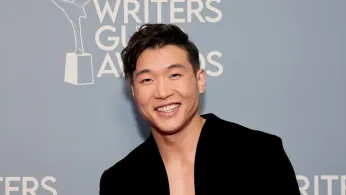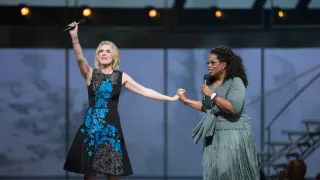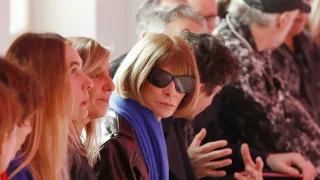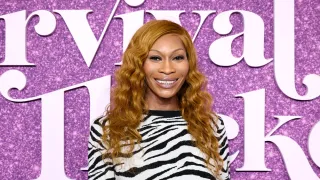
Sep 10
Queer Hollywood Stars Join 2,000+ Film Industry Figures in Boycott of Israeli Film Institutions Over Gaza Crisis
READ TIME: 2 MIN.
More than 2,000 film industry professionals—including a significant number of LGBTQ+ actors, writers, and directors—have signed a declaration of their intent not to work with Israeli film institutions in protest of the ongoing war in Gaza and what the signatories describe as the complicity of these institutions in alleged crimes against the Palestinian people . The letter, published online in five languages by the advocacy group Filmmakers for Palestine, has rapidly gained traction across the global film community, reflecting a growing demand for accountability and action within the creative industries.
Among the notable queer Hollywood stars who have joined the pledge are Tilda Swinton ("The Room Next Door"), Cynthia Nixon ("And Just Like That…"), Josh O'Connor ("The History of Sound"), Hannah Einbinder ("Hacks"), Joel Kim Booster ("Fire Island"), Indya Moore ("Pose"), Aimee Lou Woodand ("The White Lotus"), Miriam Margolyes ("Harry Potter") . Their participation underscores the intersection of LGBTQ+ visibility and advocacy with broader movements for human rights and global justice.
Titled “Film Workers Pledge to End Complicity,” the open letter calls upon all signatories to refrain from working with Israeli film institutions—including festivals, broadcasters, and production companies—that the group claims are “implicated in genocide and apartheid against the Palestinian people” . The letter defines complicity as “whitewashing or justifying genocide and apartheid and/or partnering with the government committing them.”
The pledge explicitly distinguishes between institutions and individuals, stating that signatories may continue to work with Israeli individuals, but not with organizations seen as complicit. Signatories pledge not to “screen films, appear at, or otherwise work with” Israeli film organizations identified as being connected to or supportive of the government’s actions in Gaza .
For many queer Hollywood signatories, the decision to join the boycott is rooted in a broader tradition of LGBTQ+ activism that prioritizes intersectionality and solidarity with other marginalized communities. Actors like Indya Moore and Cynthia Nixon have previously spoken publicly about the interconnectedness of struggles for LGBTQ+ rights, racial justice, and international human rights, viewing the pledge as an extension of this advocacy .
The presence of queer voices in the movement has been welcomed by some LGBTQ+ Palestinian advocates, who have long argued that queer rights are inseparable from broader human rights campaigns. At the same time, the move has generated debate within LGBTQ+ communities internationally, with some critics warning that cultural boycotts may risk isolating queer Israelis or artists who themselves oppose their government’s actions.






